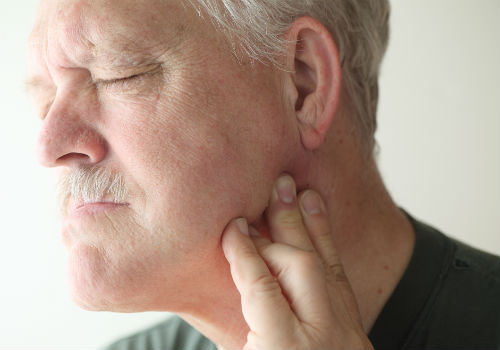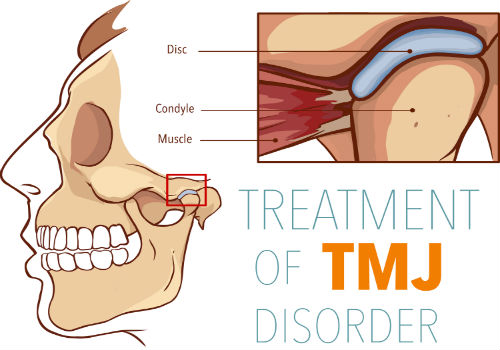TMJ disorders/TD, or temporomandibular disorder, occurs when the temporomandibular joint (which connects your jawbone to your skull) becomes inflamed. Some estimates state that over 10 million Americans suffer from a TMJ disorder. However, there are various forms of TMJ treatment accessible to dental patients who are suffering from this ailment.
The temporomandibular joint
First, it’s crucial to understand how the joint responsible for TMJ disorder functions. These joints are located on either side of your head and are very important when talking, chewing, and swallowing food. They also control the mandible, or lower jaw, as it moves side to side as well as forward and backward.
The joint hinges but also slides as part of a ball and socket to keep the jaw functioning correctly. Cartilage covers the bones that interact with the ends of the joint and a small disk also separates them to absorb shock. This disk usually keeps the joints’ movement smooth.
Causes of TMJ disorders
Common causes of TMJ can include the following:
- An eroded or misaligned disk inside the joint
- Cartilage damage due to arthritis
- Stress
- General joint damage due to impact or injury.
People who are affected by arthritis, jaw injuries, chronic clenching or grinding of teeth, or connective tissue diseases that could affect the temporomandibular joint are at a higher risk for a TMJ disorder than those who are not. This disease also seems to be more common in women than in men.
Symptoms of TMJ disorders
Symptoms of TMJ disorders can include the following:
- Nightly headaches
- Chipped or worn teeth
- Jaw locking (difficulty opening and closing the mouth)
- Jaw tenderness
- Facial muscle fatigue
- Facial and ear pain
- Teeth grinding/clenching

- Clicking noises while chewing
If you experience clicking noises while chewing, but with no pain or movement limitations, you may have a TMJ disorder but not one severe enough to warrant treatment.
Some of these symptoms may be mild or periodic, but it is best to consult your dentist if you believe you are experiencing a TMJ disorder.
How is TMJ diagnosed?
To determine whether you have TMJ, your dentist or another professional who has some familiarity with jaw conditions will closely analyze your jaw and facial muscles, probing for tenderness and painful areas, often assisted by an MRI scan.
Your dentist may not do this particular diagnosis; they may refer you to a specialist. If the professional you have consulted has determined that you have TMJ, there are many options for treatment.
What can your dentist do for your TMJ disorder?

There are many treatments for symptoms of TMJ. Some are surgical and more invasive. Most of them are relatively reversible and conservative; however, as the National Institute of Health has called for more research into the safety and effectiveness of surgical procedures designed to treat this disorder.
Treatment options for TMJ disorders include:
- Bite adjustment
- Customized bite splints
- Physical therapy
- Mouth guards
- Posture training
- Diet modification
- Acupuncture
- Laser therapy
- Affordable dental implants for TMJ
There is also the option, if necessary, for full mouth rehabilitation surgery. This procedure is a good fit for those suffering from TMJ disorders who also have misaligned bites or already damaged teeth. These issues can aggravate the symptoms associated with TMJ if experienced together, and often require a more invasive treatment for TMJ disorders than is required by people without misaligned bites or damaged teeth.
Your dentist will work with you to create a treatment for your TMJ disorder that fits best with your lifestyle and needs.
Final thoughts
Although more research is still needed into the more surgical aspects of TMJ disorder treatment, there are still plenty of effective and non-invasive ways to treat it that will work for most people. If you are suffering from a TMJ disorder or believe that you might be, speak with your dentist today and let them know.



